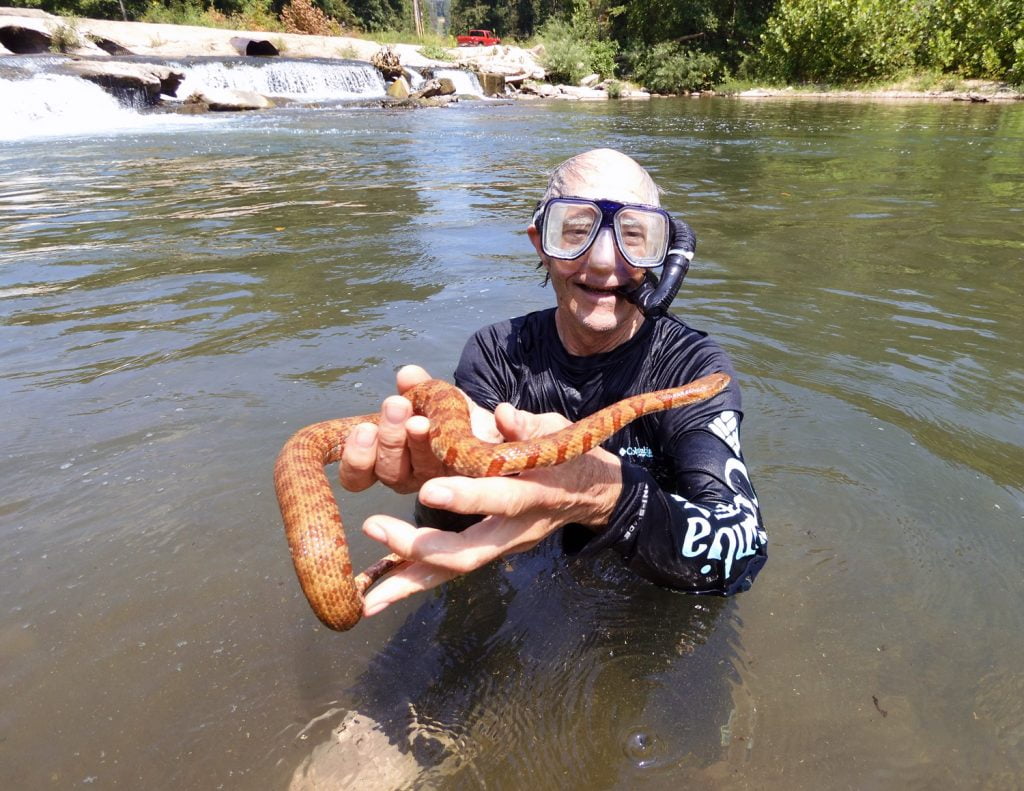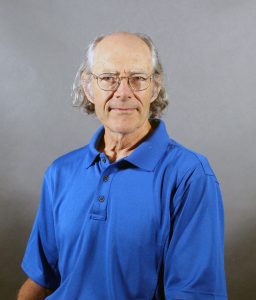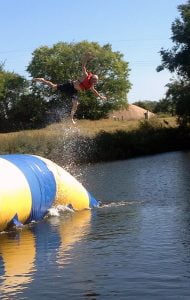
Dr. Bill Beachly believes the best learning happens not in lectures but on adventures, which is why in nearly three decades as a Hastings College wildlife biology professor, he’s taken countless students on field trips and excursions abroad. Once, he loaded up a car of invertebrate zoology students for a five-hour round trip to Iowa to search for bugs.
“It was a pretty spontaneous field trip, and it was stuff we probably wouldn’t have done without him,” said Adam Manglitz ’18, a wildlife biology graduate who is currently a first-year student at the Iowa State University College of Veterinary Medicine. “Just sitting in the classroom gets pretty old, so actually going out and seeing the things he was talking about in class helped engage us more. The lengths he would go to curate those experiences for us was very meaningful.”
In March, Beachly hosted his final official trip as an HC professor. He retires at the end of this semester, leaving behind lasting memories of time spent in the field.
“I’m totally selfish about that: I’ve liked the freedom to choose my curriculum and take students on field trips,” Beachly said. “It’s been a very nice job where I get paid to share these things with students who might never go on their own. And if they went on their own, it still wouldn’t be the same. They wouldn’t be learning.”
Getting outdoors to observe

Beachly, 70, earned a bachelors in zoology and masters in ecology from the University of Nebraska–Lincoln in the late 1970s — then spent 18 years helping run his family’s laundry and dry cleaning business. The teaching bug bit him in the 1980s when Nebraska-Wesleyan asked him to teach a course as an adjunct professor.
“That was my first exposure to the liberal arts, and that’s when I decided to go back and get my Ph.D.,” he said. “I wanted to teach in a place like Hastings College.”
He joined the Biology Department in 1997, a year after earning his doctorate in behavioral ecology from UNL. He says he found a mentor in the late Dr. Gilbert Adrian, who had worked full-time at Hastings College from 1962 to 1993, then continued to teach courses in retirement.
Adrian was known for his “travel courses” that took students outdoors to learn. He asked Beachly to chaperone many of those field trips, including several to Mexico, where students camped for three weeks at spontaneous sites along the side of the road. Adrian also hosted regular camping trips to the Nebraska Sandhills, a tradition Beachly took over in 2002 after Adrian officially stopped teaching.
“Those students will always remember their experience canoeing down the Dismal River and fighting for their lives,” Beachly said. He himself lost a pair of glasses on the rapids one year.

“They kind of went askew and he lost them — forever,” said Dr. Amanda Solem, associate professor of biology. “Bill was like, ‘I did say to take an extra pair of glasses, but I hadn’t taken it seriously.’ Now he brings an extra pair on every trip.”
Beachly also led trips to Puerto Rico, Honduras and Germany, often accompanied by his wife, Diane, who worked as an adjunct professor.
“When you have students outdoors, when you have them on a trip, it’s easy to get them to observe,” Beachly said. “There’s just so much to enrich your knowledge about, and we should enjoy these things.”
Katie Heller, a senior studying biochemistry, can attest to that. This year, she went on a two-week study abroad trip to Honduras, one of Beachly’s longest-running courses.
One day some students broke out in screams when they spotted a huge spider in their boat. Beachly was riding with them and scooped up the spider.
“We were like, ‘You know it’s in your hair right now, right?’” she said. “But he was so calm, just letting it crawl all over him as he explained what kind of spider it was and showed us all its different features.”
And that was his approach to practically every insect, animal and plant students came across, Heller said. He even pointed out the critters they might have missed.
“All the sudden he would pull us over to a little creek and say, ‘If you just sit here for a little bit and look into this corner, you’ll see little jellyfish,’” Heller recounted. “It showed me how important it is to have fun. Just because you are a researcher doesn’t mean you have to be in a lab all day.”
Inside the classroom
When it wasn’t possible to get students into the field, Beachly still tried to spice up the monotony of a lecture. First-year biology students learned through the grapevine to expect a spectacle when Beachly got to the section on nerve function. He’d ask to shake hands with a student in the front row, then start spasming to demonstrate what happens when nerve endings rapid fire in a neuronal cascade.
He’d also do his own rendition of a Sandhill crane mating dance and lead the class in tossing around a Mr. Bill doll, the clay figurine of “Saturday Night Live” fame, to randomly select students to answer quiz questions. Occasionally, he’d bring in a handmade board game he designed for specific lessons.
“One day I came in, and he’d built this mountain out of paper scraps and spray foam and paint,” Solem said. “It had all these caverns in it for a game where students played as different organisms trying to scale the mountain.”
Beachly says he will miss teaching but has no plans to stop exploring in retirement. He, Diane, and their three horses are moving from a 2.5-acre property in Assumption, Nebraska, to a 12-acre property near Concordia, Kansas, surrounded by prairie and pasture to observe local wildlife.
“I asked him for his retirement, would he rather have a retirement party in a room or a retirement nature walk,” Solem said. “I’m sure you can guess what it took him about two seconds to choose.”
The walk is scheduled for Friday, May 17 at 9 a.m. beginning at Perkins Library. All are welcome.
